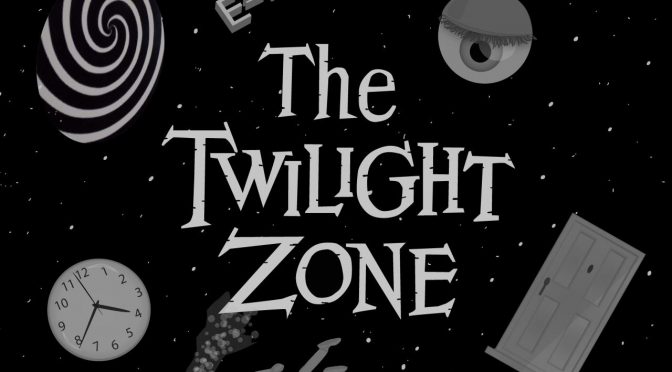Evolution is inevitable, regardless of what certain people may believe, whether it be socially, physically, or personally. Things change, grow, adapt and become something else over a gradual process. In the literary world this is most obvious in the themes that change over time and the way we view certain tropes of the bygone era. Speculative fiction writers in particular have an almost love-hate relationship with our roots – we love the classics that broke new ground but hate to think we might be grouped into the same niche they were. After all, sci-fi and fantasy once carried a terrible stigma of being the domain of basement dwelling losers who took it all far too seriously. Since the day sci-fi became a thing it has gradually done everything it can to be taken seriously as a genre and considered “literature” with the rest.
It wasn’t very long ago in the grand scheme of things that sci-fi was still considered a new, fringe category that barely counted as a genre. Compared to others that have existed for ages, the earliest known works that could be strictly considered “science fiction” date back only a couple centuries at most where as others can count their earliest entries back to the dawn of the written word. Sure, Beowulf wasn’t considered “fantasy” at the time it was written, but it’s hard to deny that’s really what it was. And because of this we can also point at almost the exact moment where Sci-Fi made this transition from being an oddity into a true genre – we call it the Golden Age.
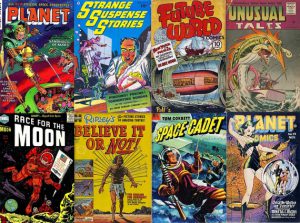
The Golden Age was a time of big ideas and big figures, people like Issac Asimov, Ray Bradbury and Arthur C Clarke dominated in these days and their work went on to define not only the genres but how we think about certain parts of civilization. Despite having a simplistic view on it, it’s hard to get through a conversation about robotics without someone bringing up Asimov’s three laws. And Arthur C Clarke, with “Clarke’s Law”, made us realize just how fantastic things we have today would appear to the past and how fantastic things from the future would appear to us. And as far as the genre went, it’s undeniable that the ideas they introduced to us have become a foundation of the genre as we know it today.
Still, while the Golden Age made sci-fi a serious genre, it wasn’t the only era that made sci-fi what it is today…
New Age Weirdness
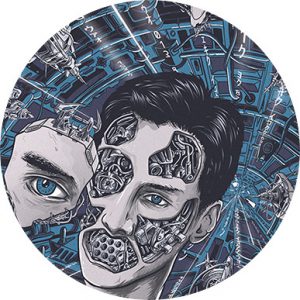
Following the end of the Golden Age somewhere around the 1950s (people like to argue on this one), there was a period of time where the genre slipped out of popular mindset but continued to bubble under the surface. There were still good stories to be had, and there were people who felt the 50s were the true “Golden Age”. In fact, many of the best works of Golden Age authors, especially Asimov were published in the 50s. But, despite great works being released in these times, they didn’t receive quite the attention they deserved for some time to come. It was the 50s, after all, a decade that is often seen as being stuck in between two greater eras no matter which subject you might be following. Even their wars weren’t quite treated the same.

But then the 60s happened, the “New Wave” came along… and shit got weird.
The previous two eras of Sci-Fi, the Pulp Era and Golden Age, were defined by some pretty clear markers. The Pulp Era, defined mostly by taking what were essentially fantasy stories and shooting them into space, was really just an excuse to use Sci-Fi trappings to redress old plotlines. Sure, it was aliens instead of monsters and spaceships instead of pirate ships, but the basic structure was still the same. The era wasn’t really about anything and had little if any roots in real science, it was just all in good fun.
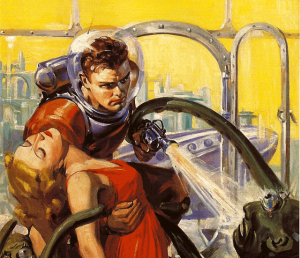
The Golden Age, in contrast, was deeply rooted in hard science and the ideas of what could be happening not only in the future but ostensibly “soon”. This was an era where the world was beginning to change rapidly under the influence of technology with the introduction of cars, planes, radios and eventually even television. Because of this, and the way the World Wars redefined a lot of world views, it was easy to see that humanity was going towards a starkly different future. Writers used this time to ask questions about what that future would look like and how the world would change. But then, as the Golden Age passed and civilization entered the cold war and the actual space age, the New Wave of sci-fi had a different question to ask: how would we change?
New Wave Sci-Fi, starting in the 60s and rolling through the 70s, eased up on the hard science of the Golden Age and started to focus heavily on experimentation and philosophy. Like the Pulp Era of the time before, it was less concerned about how things were done and how it would work, often treading fairly close to what we’d now call “sci-fantasy”. But the writers of the era, while similar in style, had that same conflicted view of their past that we do today. While the Pulp Era wasn’t necessarily about anything and full of seemingly shallow adventure stories, New Wave was concerned with greater questions about the impact of science on philosophy, society, and the individual. And, though these things had been explored to an extent in the Golden Age (with the likes of Brave New World and Nineteen Eighty Four being published at the very fringes of the era), the standard Golden Age version was about what kind of impact social and technological changes would have on civilization as a whole. On the other hand, New Wave Sci-Fi was more concerned about the individual and their place in it all.
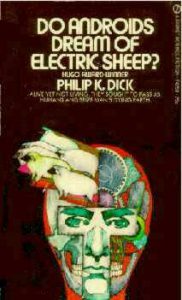
This was a time when the likes of Philip K Dick became popular. While not many have heard the name today, they’ve seen the adaptations. Total Recall, Minority Report, and Blade Runner are just a handful of many adaptations made of Philip K Dick’s work over the years and they reflect some of the questions running around at the time. Being a product of the 60s and 70s and having done an incredible amount of drugs, Philip K Dick was often questioning the nature of reality and a person’s place in it all. If you could predict the future, would you be trapped in that result? Could you ever be certain about what was and wasn’t true in a world where memories could be rewritten? Can you even be certain everyone you meet is human? And, funny enough, the adaptations barely scratched the surface – sanitized for easier consumption and given a sometimes more coherent plotline.
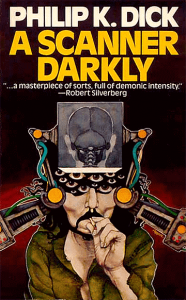
One of the most direct adaptations of Dick’s work was A Scanner Darkly, a film based on a story based on the man’s own bad drug trips. Exploring the nature of identity, personality, and our perceptions of reality, Dick wrote a story about a drug so powerful it could make a person forget who they really were. And, due to the nature of the protagonist’s job as an undercover agent, there were no means of anchoring him to his original self. For all intents and purposes, the protagonist of A Scanner Darkly is lost to the drug, rewritten and turned into someone else. And along the way, just how weird did that all get?

Yeah, that’s New Wave.
Many contemporary creators look at the weirdness of New Wave with conflicted emotions. On the one hand, for many of us the stories can be nostalgic, reminders of our childhoods or of a time when we didn’t have to take the genre quite so seriously. We often try to recapture some of the magic of the era, the philosophy, and the reflections on reality that were so common in the day. On the other hand, we can also worry that if we let ourselves get as weird as New Wave we could be seen as immature or, worse than that in many ways, “campy”. For a group of writers who’ve always wanted to be taken seriously, those two descriptions can feel like a condemnation. And yet, when you’re really honest about the history of our genre, The Golden Age wasn’t what made sci-fi into a mainstream genre, New Wave was.
We look on at The Golden Age as the time when science fiction really became a serious genre because it was full of some of the greatest stories to ever be written. But when you really consider the first sci-fi you were ever exposed to, that you really started to love, a great many of us can look back and realize that the thing that brought us into the genre was New Wave. It wasn’t because the stories and styles were somehow better, but rather just a stroke of good timing. Because New Wave had something going for it that the previous eras simply didn’t: film and television.
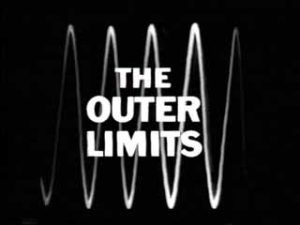
Though film and television had existed back in the time of the Golden Age, they didn’t really take off in a serious way until the Golden Age was more or less over. The 50s were a fantastic time for new forms of media and the concept of special effects opened up whole new frontiers. And with this new frontier of storytelling a whole generation who wasn’t quite able to keep up with the written works of the Golden Age were given a view into other worlds through a seemingly magic box they could see in their living rooms. These children, enraptured by what they saw on the screens, soon went on to get more to read and watch over the years. And the style that dominated television and film for a long time? New Wave.
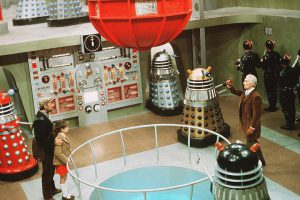
Think about it, most of the great sci-fi classics of television and film fall into three categories: created during New Wave, adapted from something written during the New Wave, or created by people who grew up reading and watching New Wave. Yes, the Golden Age left the most marks on how we see the genre itself, and it’s sometimes the more “serious” of the two, but New Wave was the era that made people love the genre and pass it on to their kids in droves. My fondest memories of my childhood were watching Star Trek: The Next Generation with my dad, who had himself watched the original series when he was a kid. He introduced me to sci-fi and fantasy, a pair of genres he came to love through the campy, cheesy, ridiculous works of the 60s. It was, despite how uneasy it makes some creators, the very thing that got our genre where it is today.
There are some out there who will hear me say that the thing that introduced them to the genre could have been “campy” or “weird” and have a knee jerk reaction. I can hear the responses now, “no, my [show/movie/book] was mature and ahead of its time”. But, don’t get me wrong, I fully acknowledge that works from the New Wave were thought provoking and inspiring. Some of my favorites are from that time too. They are every bit as responsible for adding philosophy to our world view as the Golden Age is responsible for adding hard science to it. All I’m saying is…
It’s okay to accept the trippy shit that got us here.
(I write novels and dabble in screenplays. If I ruined your childhood, you can let me know on twitter.)


